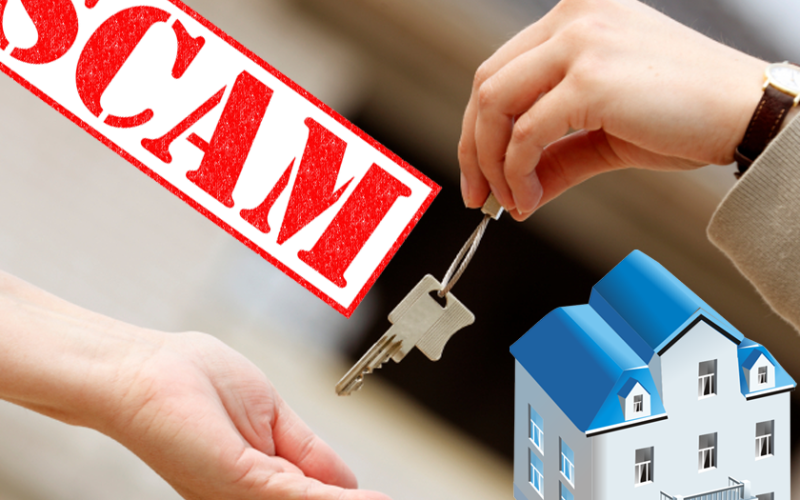Dubai’s real estate market is one of the most transparent and well-regulated in the world, largely thanks to the efforts of the Dubai Land Department (DLD). However, as in any major global market, bad actors can occasionally exploit unwary buyers, tenants, and sellers.
Protecting yourself requires knowledge and vigilance. This guide outlines the most common real estate scams in Dubai and provides actionable steps to ensure your transaction is secure and successful.
1. The Too-Good-To-Be-True Listing
The Scam: You find a stunning luxury apartment in Dubai Marina or a spacious villa in Arabian Ranches listed for rent or sale at a price significantly below market value. The “agent” or “landlord” pressures you to act quickly and wire a deposit to secure the deal before others do.
How to Avoid It:
-
Know the Market: Conduct a comparative market analysis (CMA). If a price seems 20-30% lower than comparable properties, it’s a major red flag.
-
Never Wire Money Prematurely: Never transfer a security deposit or down payment before verifying the legitimacy of the listing and the party you are dealing with. A legitimate agent will never pressure you to wire funds urgently.
2. The Unregistered or Fake Agent
The Scam: An individual posing as a real estate agent shows you properties but does not have a valid RERA (Real Estate Regulatory Agency) license number. They may collect a deposit and disappear, or they may not have the authority to represent the property at all.
How to Avoid It:
-
Verify the RERA License: Every legitimate real estate agent in Dubai must be registered with RERA and possess a license number. Always ask for it.
-
Check the Public Register: You can verify an agent’s license status on the official Dubai REST app or the DLD website.
-
Work with Reputable Agencies: Choose well-established, branded brokerage firms with a physical office and a proven track record.
3. The “Owner” Who is Out of Town
The Scam: You find a property listed directly by an “owner” on a classifieds site. They claim to be out of the country and ask you to wire the deposit and first rent payment. They promise to courier the keys to you. Once the money is sent, they vanish.
How to Avoid It:
-
Insist on a Meeting: Never deal with an absentee “owner.” A legitimate owner will have a representative (a licensed agent or a property manager) in Dubai.
-
Verify Ownership: Before transferring any money, verify the ownership of the property. You can do this by requesting the Title Deed (Oqood for off-plan) or using the Dubai REST app to check the property details with a small fee.
4. The Double-Dipping Landlord
The Scam: A landlord signs multiple tenancy contracts for the same property and collects multiple security deposits and annual rent payments (often in cheques) from different tenants before disappearing.
How to Avoid It:
-
Register Your Tenancy Contract with Ejari: This is the most crucial step. The Ejari system officially registers your tenancy contract with the Dubai Land Department. A landlord cannot register the same property twice. Always ensure your contract is Ejari registered before you hand over any cheques beyond the initial security deposit.
-
Pay Rent via Cheque: Stick to the standard practice of paying rent by post-dated cheques. Avoid paying a full year’s rent in cash upfront.
5. The Fake Title Deed or Off-Plan Fraud
The Scam: A seller presents forged ownership documents for a property. Alternatively, a “developer” sells off-plan units in a project that doesn’t exist or isn’t authorized.
How to Avoid It:
-
Use Trustee Offices: All property sales must be processed through an official Trustee Office at the DLD. They verify the authenticity of all documents and the identity of the parties before transferring ownership. Never conduct a private sale without going through the DLD.
-
Verify Off-Plan Projects: Only buy off-plan properties from developers registered with the DLD. Check the project’s RERA registration number and ensure your payments are made into the project’s designated Escrow Account, not a personal company account. You can verify Escrow account details on the DLD website.
6. The Hidden Fees and Phantom Charges
The Scam: After agreeing on a price, an agent or landlord adds unexpected “processing fees,” “agency fees,” or “government charges” that were not disclosed upfront.
How to Avoid It:
-
Get Everything in Writing: Ensure all fees, including the agency commission (usually 2% for rental and 2% for sales from both sides), are clearly stated in the initial Memorandum of Understanding (MOU) or agreement.
-
Understand Standard Costs: Familiarize yourself with standard closing costs (like the 4% DLD fee) so you can identify illegitimate charges.
Your Golden Rules for a Secure Transaction
-
Verify, Then Trust: Always verify the identity, license, and ownership before you trust any party.
-
Use Official Channels: Insist on using Ejari for rentals and the DLD’s Trustee Office for sales. These systems are designed to protect you.
-
Never Succumb to Pressure: Scammers create a false sense of urgency. A legitimate deal will allow you time to do your due diligence.
-
Get Professional Help: Engage a reputable law firm or conveyancing service for high-value transactions to handle all checks and paperwork on your behalf.
The Bottom Line
The Dubai Land Department has created robust systems to make real estate transactions safe. The key to avoiding scams is to always work within these official systems.
By insisting on verified agents, registered contracts, and official payment channels, you can leverage Dubai’s transparent regulatory environment to protect your investment and enjoy a completely secure real estate experience.
Need a verified partner? Our agents are RERA-licensed and committed to 100% transparent and compliant transactions. Contact us for a secure and professional real estate experience.







